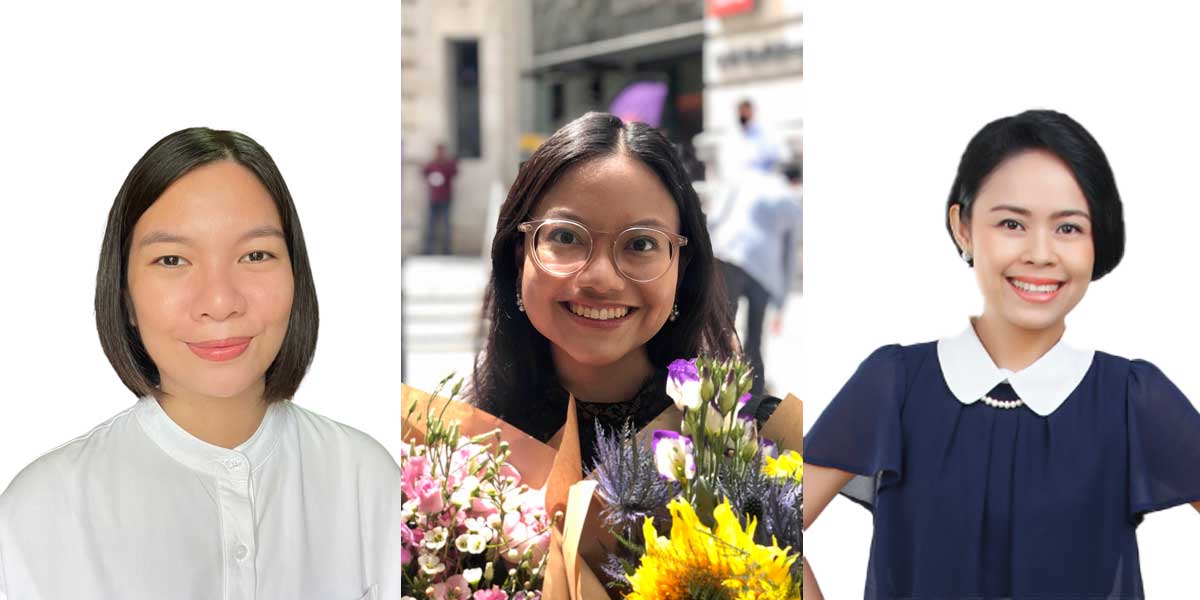
Facebook has become one of the key parts of the machineries used by politicians as they seek posts for the upcoming 2022 Philippine elections. Despite being sometimes prone to abuse and left unchecked against threats and harassment, the platform has been widely used by Filipinos in the past years – with the Philippines being dubbed as the social media capital of the world.
As the first-of-its-kind pandemic election approaches, political camps have been using Facebook groups to send out updates to followers and to coordinate movements across the country, at times resulting in high engagement in online communities.
But this high usage does not necessarily entail big political participation in virtual communities.
This was a key finding of the study titled ‘Depoliticization of the Political in Facebook
Groups’ presented by Julienne Thesa Y. Baldo-Cubelo, Luisa C. Pineda, and Candice Marie V.
Perez during a #FactsFirstPH briefing held Friday, April 1.
The study focuses on how followers in a group may become “depoliticized” or grow silent and become passive observers in political discussions within the Facebook group – a negative for democracy – due to a variety of factors.
The study acknowledges that it appears “counterintuitive” for people to become depoliticized inside groups where elections-related content are posted and shared – and yet, that’s what’s happening at times:
“How can there be ‘depoliticization’ in a political activity such as in the sharing of, commenting on, and posting of elections-related content? This is counterintuitive if we think of it. Our analysis is an invitation to seeing an image that is not apparent but consequently moves people away from engagement,” the study reads.
Lead author Baldo-Cubelo, Pineda, and Perez are part of the Philippine Media Monitoring Laboratory of the Communication Research department of the University of the Philippines Diliman.
Citing studies, the authors defined “depoliticization” as the “lack of political choice and deficiency of spaces for expressing varied styles of making a choice.” In other words, rich, varied discussion as in a healthy democracy is reduced, possibly leading to absolute claims or a simplistic black-and-white understanding of issues.
“When there is moral panic around issues like the drug war or reproductive choice, stakes are high, but alternatives should not be bound by binaries and absolutisms,” the study said.
The researchers scanned 5,379 unique public Facebook group posts on elections-related topics covering May 2021 – or a year before the national elections – until January 2022. The final sample size used by the team is 54 posts.
The researchers listed some salient instances, based from the sampled posts, where depoliticization happen in Facebook groups:
Absolute truths that prohibit opinion-making. Captions and comments from FB group members often have a tone of impenetrable agreement with the posts shared. These expressions of assent often include strong affirmations of the singularity of choice – only this leader, only this path.
Simplistic binaries (such as wrong and right) that do not expand discussion. When only two alternatives are presented, people not content with either will not join or continue with the discussion. When one option can be so wrong while the other can be very right, then there is no use for further deliberation.
Being “apolitical” as self-preservation. This makes users leave after participation, because to “be political” could be too costly when health, peace, or friendships are at stake.
The study also compares Facebook groups to a road intersection where there is “high
engagement from many people coming from different directions.”
This nature of Facebook groups being like an intersection, leads to a “looseness of relationships” that may allow for the seeding of political content that goes unchallenged, likely becoming a potent avenue for disinformation or propaganda.
The authors argued, “The looseness of relationships matched with loose affinity [in Facebook groups], allows for seeding political content that is not challenged. The data analyzed showed how in-group call-outs are rare while ‘seen’ posts are most common,” the authors wrote.
The authors also gave recommendations for Filipino Facebook users not to succumb to manipulation in groups, advising to own ‘citizenship’ in digital spaces where users have given their consent to participate in, being aware of the red flags in groups, and flagging posts and knowing when to leave.
“The counterintuitiveness of ‘depoliticized’ engagement makes it pass by us unchecked. Under our noses and in spaces we give our consent to sharing with others, there is a movement that happens: people receding into silence and giving-up their space,” the authors concluded.
#FactsFirstPH is an initiative among groups and media organizations that aims to promote truth and fight disinformation as the election approaches. Its research arm releases weekly pieces about trends and false narratives its members monitor online.
About the authors
Julienne Thesa Y. Baldo-Cubelo, PhD is an Associate Professor at the Department of Communication Research of the College of Mass Communication, University of the Philippines Diliman. She teaches qualitative research analysis in the undergraduate and the graduate programs. Her research interests are communication and culture, representation in advertisements, feminist standpoint, and participatory communication.
Luisa C. Pineda, MSc is a Research Assistant at the Philippine Media Monitoring Laboratory of the UP Department of Communication Research. She recently graduated from the London School of Economics and Political Science with a degree in Media, Communication and Development. Her research interests include media and disinformation, labor and migration, gender and climate justice.
Candice Marie V. Perez is a Senior High School faculty at the De La Salle University Integrated School. She teaches the course Media and Information Literacy as her main assignment, and other subjects under the Arts and Design Track. She is currently taking MA Communication at the University of the Philippines Diliman.


















